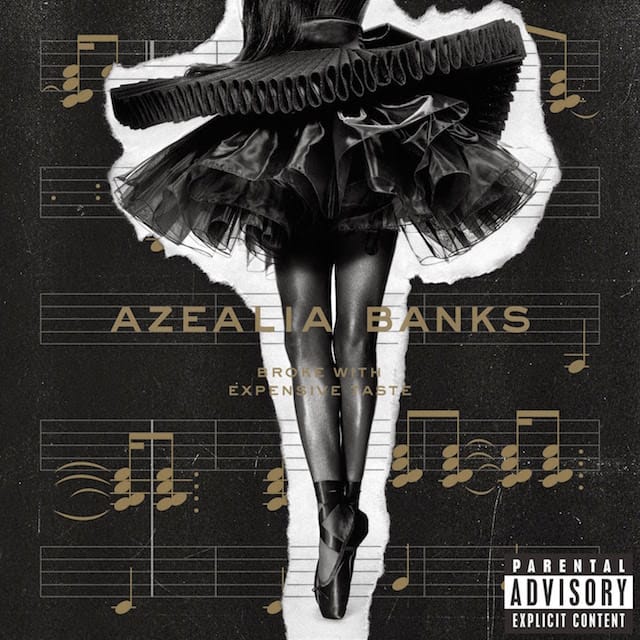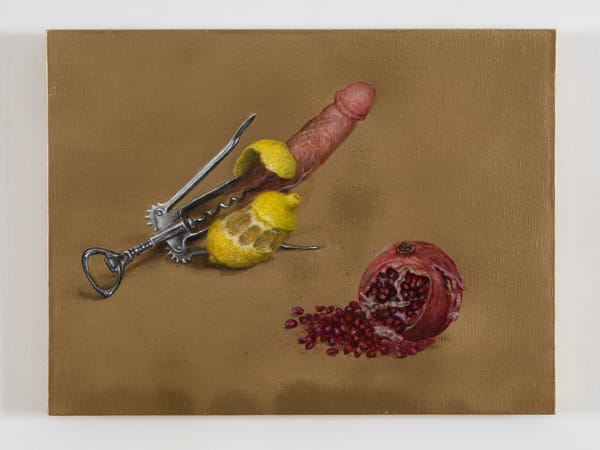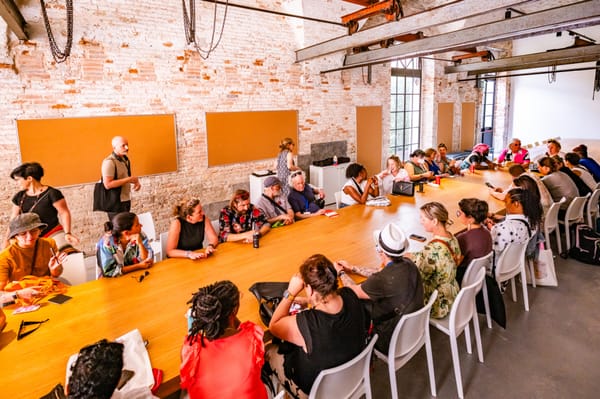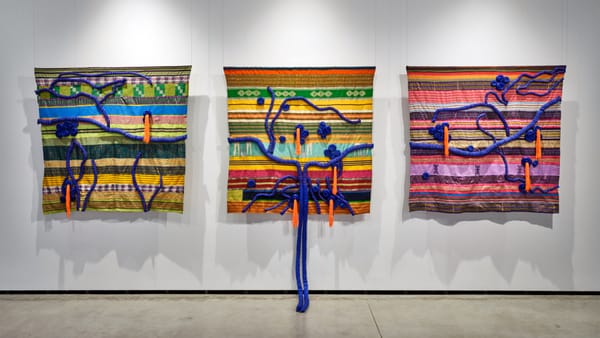Azealia Banks Jumps Up and Down
A sizzling keyboard riff slides out of nowhere and bounces around for a few seconds before a metallic snare drum comes in and a woman starts rapping.

A sizzling keyboard riff slides out of nowhere and bounces around for a few seconds before a metallic snare drum comes in and a woman starts rapping. The keyboard riff, stark and minimal in the established dancefloor/dubstep-tinged style, jumps up an octave when the drums and vocals kick in, but after a few bars it jumps back down, and then back up again, and you think you’ve figured out the song. You start to relax, enjoying the jerky rhythms and the rapper’s flow. Then all of a sudden she stops rapping and you hear a sampled voice mutter, “That’s the loveliest thing I’ve ever heard,” whereupon she just picks up her verse again, as if the sample were something she herself had just said. Then the beat jumps up yet another octave, taking on a screechy, abrasive quality that seems akin to a lot of electronic dance music and also feels fractured, stuttering, syncopated. The song is “Heavy Metal and Reflective” by Harlem rapper Azealia Banks. Continuing to change octaves throughout the song, the beat alone bangs and skitters long past its breaking point, and her rhymes are superb, clearer and also more complex than the current hip-hop norm. It’s just one song on her excellent full-length debut, Broke With Expensive Taste.
After numerous delays, a lengthy battle with Interscope, her switch to the Prospect Park label, and mild-to-intense public anticipation, Broke With Expensive Taste finally came out this November, over a year since the 2013 release of its lead single “Yung Rapunxel.” Banks had become a recognized name in hip-hop first in 2012 on the strength of her 1991 EP, highlighted by the whirlwind “212,” which was her most popular song by such a margin she also included it on Broke With Expensive Taste. There was a while when it looked like she would just disappear without getting the full-length released, when she was more famous for her feuds with other rappers on Twitter than for her actual music. But once the record came out it was a modest critical success, placing high on such year-end lists as Pitchfork’s, PopMatters’s, and the Village Voice’s Pazz & Jop Critics Poll, and hey, for such ambitious and eccentric music it sold pretty well too. By definition more substantial than 1991, it’s also sturdier and more coherent than the Fantasea mixtape she released alongside 1991 in 2012. It’s a great dance record in the vein of many other electronic hip-hop records being produced right now. It’s a heavily sampled studio pastiche, the nervous leanness and synthetic chaos of which has largely gone out of fashion among hipper DJ beatmasters. It’s a neat, imaginative, entertaining, weird but worthwhile articulation of what may very well be a new rap aesthetic.
As technical verbal display, Banks’s polysyllabic rhymes and extended metric patterns suggest a higher level of craft than most rappers put into their punchlines. Check how every single line rhymes with all the others in “Heavy Metal and Reflective” or “Yung Rapunxel,” then notice how precise and multifaceted her sentences are. Particularly fond of hard dental consonants, she seems to morph over into vocal percussion at times, but her raps also flow so smoothly and naturally that a lot of what she says might go over your head; consequently, as with “212” above all but everywhere on the album really, she loves sneaking in salacious details, proclamations, and insults, the likes of which could get her banned not just from pop but rap radio if programmers felt exegesis were in order. She enjoys subverting traditionally male hip-hop tropes, including but not limited to sexual ones, and no musician has done more with the word “cunt”: as reversal of sexist slur into proud feminist badge, and also as a syllable, a flat vowel surrounded by two guttural consonant sounds that she can rhyme with “lunch” or “plum” as she pleases. What’s more, her music suits her rapid-fire style of rapping. Many of her beats have more in common with modern electropop than with anything scaling the hip-hop charts, and a number of critics have connected her to the cymbal-heavy thrust of ‘90s house. Either way, this is rap music centered less on minimal melodic loops than on pure rhythm: blasts of harsh steel, rattling sound effects, a snowballing procession of drumbeats. Often the keyboards feel drumlike too somehow, transmuted into xylophones or some other cryptic noise. Yet the sonic construction as a whole feels unexpectedly sprightly, fleet-footed, and very quick. Simultaneously abstract and aggressive, avoiding both standard hookcraft and avant-meandering, plugging into a dance mode that values velocity and efficiency above all, she jumps up and down, side to side, all over the place.

Broke With Expensive Taste is an extended adventure into this unique brand of flow. Every second on the record lickety-splits, rickety-ticks, flippity-clicks, and zippity-shits, sustaining its mad momentum from beginning to end. There’s a startling musicality in its constant percussive hopping, a lightness that seems precious and endangered because the music is always ricocheting around and kicking outward. Most of these songs are straightforward exercises in braggadocio and/or demeaning rivals both female and male, which latter she does with exceptional creativity and cruelty. Many filter in sampled sounds or dabble in genre exercises that fit the sonic gestalt, like the Spanish verse in “Gimme a Chance” or the demented rockabilly anthem “Nude Beach A-Go-Go.” Many have sung choruses, sweet melodic interludes between sharper verses; called upon to actually sing a tune, she proves a much prettier vocalist than most rappers who would ever try such a thing. Nevertheless, it’s the dense, sputtering pace of her rapping and the drumming underneath it that sends the record into explosive, hyperactive overdrive. Most hip-hop motion is circular, repeating a simple, self-enclosed hook for the duration of a song. Banks’s is forward — the rising and falling pitched snares in “BBD,” the pattering bleeps in “Idle Delilah,” the constant thumping bass/percussion combo in “Yung Rapunxel” — and this effect is unfamiliar, a little disorienting at first. However active a dancer one might be, after all, during an hour-long album total speed all the time is generally considered a daft idea, a good way to tire people out if not break a leg. But adjust your ears to her high-energy beat and a plethora of really cool noises awaits you, as do lyrics whose dimensions rely on Banks’s dense delivery and the defiant immediacy with which she spits them. The quickness and ease of a music whose tough rhythmic core supports any number of supplementary percussive textures adding color, range, and accessibility will lock into your mind and lend a spring to your step. You’ll grin at her tootles of horn, her shattered bell crunches, her high synthesizer slashes, her low, streamlined voice itself. You’ll realize she’s invented a staggeringly original style of dance-rap too fresh and vital ever to stand still.
Club-friendly though it may be, “Heavy Metal and Reflective” will most likely never crack Top 40. Neither will “Chasing Time,” its more pop-ready follow-up single, although the album itself did reach #30 on the Billboard Top 200. Its only real hit was “212,” which came out three years ago. I expect Banks to achieve true commercial success one day — she’s driven and talented enough that her fanbase is bound to grow if she sticks around. Until then, Broke With Expensive Taste will be for crazed aesthetes who crave only the extreme, and boy will we enjoy it. No other album released in 2014 will make you dance as hard, for as long, or in such impressively contorted patterns.
Broke With Expensive Taste and 1991 are available from Amazon and other retailers.





